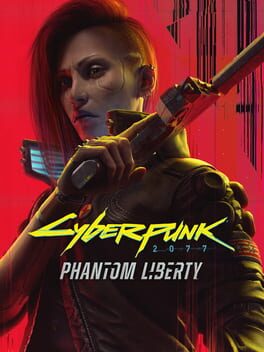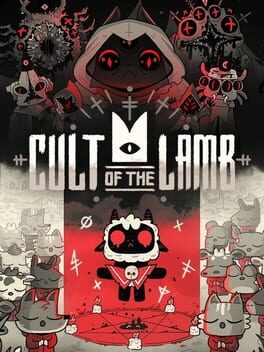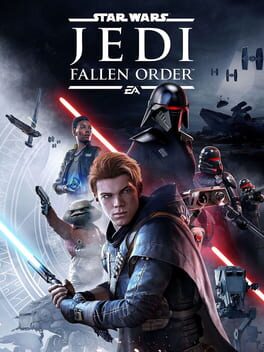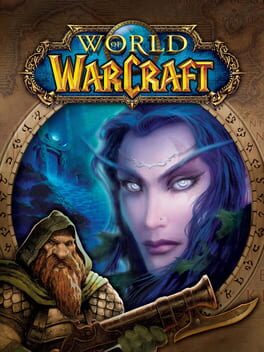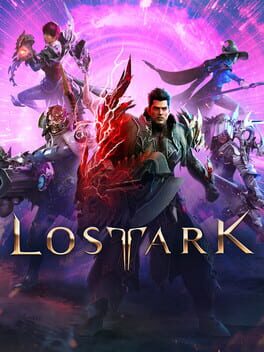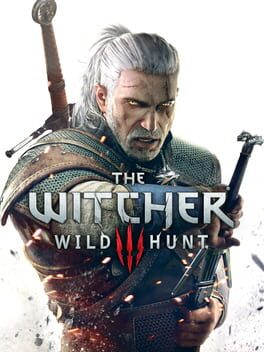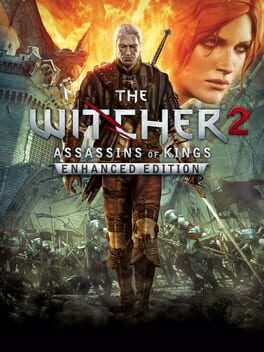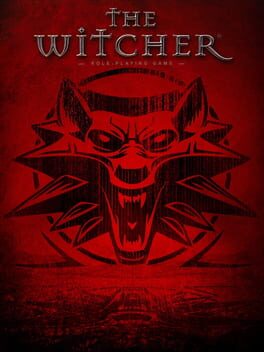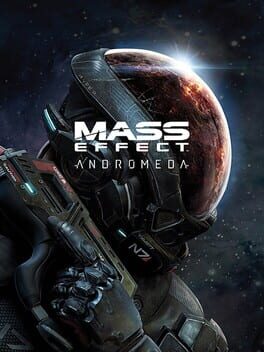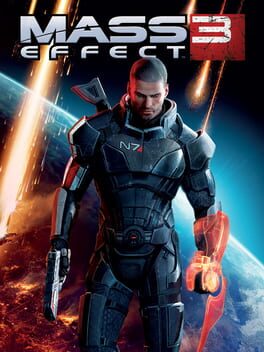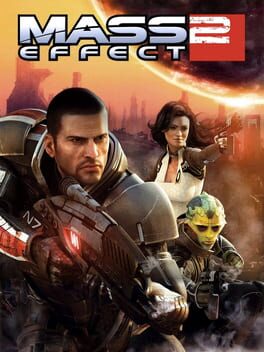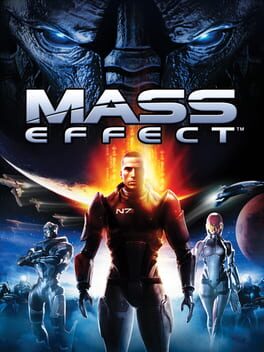H3rmit
A game surrounded by a cult, called a legend, professed like a religion. A game that has gathered around it people who hate it, but also people who love it. Considered the peak of location design and repeatedly mentioned when discussing RPGs. Dark Souls took the definition of the genre even higher, spread the brand and caused a veritable "boom" in this type of game. It is considered a legend or even already a classic for good reason. Dark Souls should be known, it should be played at least once. But why all this phenomenon and is it really that good?
A long time ago, the world was not fully formed. It was shrouded in mist, and the only landscape were Archtrees and Everlasting Dragons. Eventually fire appeared, and with fire came heat and cold, life and death, and light and darkness. Then four lords appeared - Nito, the First of the Dead, the Witch of Izalith, the Daughter of Chaos, Gwyn, the Lord of Sunlight and his loyal knights, and the furtive pygmy, so easily forgotten... The lords defeated the dragons, which gave rise to the Age of Fire, which was prosperity and a good time for the Lords. Eventually, however, the Age of Fire will end, and only darkness will remain in the world... This is how we are introduced to the history of the world, or rather its description. Our protagonist, the Chosen Undead, travels through the lands of Lordran at the end of their existence. We meet the Lords, but they are already on the brink of death. The world is collapsing, falling into darkness, and our task, as the Chosen One, is to prolong the Age of Fire by linking ourselves to the fire. In the meantime, however, it turns out that people have not been treated very well in this world, and the Age of Darkness does not necessarily mean bad times - quite the opposite. Are we just soulless messengers of the gods who want to use us to extend their prosperity? Are the heroes we meet along the way really that pure? That's something you already have to discover for yourself.
The plot is amazing - dark, complicated, multithreaded and not obvious. The world is very original and it is difficult to find another universe as enigmatic. The story clearly shows inspiration from Arthurian legends or ancient Norse poems, and more inquisitive players will find references to Tolkien's classic works in this game. However, despite these inspirations, the world is unique. It does not give the feeling of derivativeness - on the contrary, for me, as a die-hard fantasy fan, Dark Souls is a real gem in modern fantasy creation, because, contrary to appearances, the story is very down-to-earth and real. The setting of the imaginary world is actually an illusion to give us comfort in what we experience.
The next point will be the narrative, which is hated by as many people as it is loved by. But from the beginning - the game is carried out in a non-obvious way, the characters speak in riddles and metaphors - they do not give us a complete picture of the world. Many facts have to be guessed or inferred from the outstanding environmental narrative, which, if we are observant enough, explains a great many theoretically contradictory things. It is also crucial to read descriptions of items, which often present more information than dialogues with side characters, who are also not often eager to talk. Unfortunately, the average player won't get much information out of this game, on the contrary - he or she will probably know nothing, and even if he or she is eager to learn this secret knowledge, he or she may get tired of the fact that the plot is a scattered puzzle. Fortunately, to the rescue comes YouTube and Reddit, where fans share their thoughts, theories and facts from the world of the game. In a way, the game forces us, as the Dark Souls community, to share what we've noticed in the game world and connect all the dots together. Personally, I think this is a phenomenal trick, but I am well aware that not everyone will like it.
The most recognizable element of Dark Souls is probably the gameplay, which today is already considered iconic and whose elements can be found in many, really many different productions, such as 2018's God of War or The Witcher 3. The fundamentals are simple - attack, strong attack, block and the famous rolls. The strength of the attack depends on the base damage of the weapon, its scaling and the level of upgrade, which we can successively increase as the story progresses. The tools of murder are divided into the larger and slower ones, which are related to our character's strength statistic, and the smaller and faster ones, which are centered around characters created with the dexterity statistic in mind, or weapons that are something in between and benefit equally from both stats. In addition, there are also spells and various wands, but I'll admit frankly that I've never been interested in such gameplay, so I'll refrain from describing the game with this style of combat. Melee weapons are really interestingly designed, they have their own particular playstyle, to which you either have to get used to, or you have to search for that perfect weapon to no avail. The choice is huge - from halberds to huge swords leaning against our character's shoulder. It is also interesting to note that there are, for example, swords that are made to play under a hybrid of strength and intelligence, or magic, and a great example of such a weapon is Moonlight Greatsword. I am of the opinion that the combat system is phenomenal and there is something for everyone here.
As for the famous rolls, the matter is quite clear - depending on the equipment overload you have, you move and perform rolls slower or faster and increase the number of "invincibility frames", that is, the time during which you are invulnerable while rolling. This way, with a loadout of 25%, the character is very fast and agile and hard to damage, but at the same time you give up heavy armor and higher resistances. Alternatively, you can take the complete opposite approach and bet on full heavy armor, while giving up agile dodging, but having enough "poise" that increases our balance and resistances. The game leaves the choice to us, the players. I find this system phenomenal, because it forces you to think strategically and allows you to experiment a little with parts of your equipment so that you can fit within the limit of the so-called fast roll, putting on the heaviest armor possible and pushing your equipment limit to the maximum. Great stuff!
Worthy of praise are the bosses, which are still very impressive to this day. Fights such as Ornstein & Smough, Artorias, Manus and Kalameet will remain in my mind for a very long time. Adding to the atmosphere is the amazing music composed by Motoi Sakuraba and Yuji Takenouchi, which is serious, mostly atmospheric and extremely operatic. It adds such "uniqueness" to the boss encounters, making them more special.
The most important aspect of Dark Souls, however, is the game and location design, which is unique compared to other games in the series. Until about halfway through the game, the player does not have the ability to teleport between different bonfires, which forced the developers to cleverly and very intelligently connect all locations in the game to the main hub, the Firelink Shrine. This leads to some truly surprising moments, during which it turns out that we weren't that far from our resting place after all, and everything actually happens side by side. This is unique insofar as no future From Software game has repeated as much attachment to the connection of locations as the original Dark Souls. My fondest memory of the first blind playthrough of this game is that it is very impressive and frankly surprising.
Unfortunately, it is not without its downsides - the most important point is the clearly unfinished "Lost Izalith" location, which is derivative, annoying and repetitive, and the boss of this location itself is simply mediocre and probably the most ridiculously designed boss in the entire trilogy. The visuals of the remaster are also NOT worthy of praise. The studio from Poland didn't make an effort when remastering this game and the only thing they really changed was to slightly improve the lighting, add keyboard key mapping, increase the number of players in PvP and increase the resolution. Dark Souls begs all the more for a thorough rework on the scale of Demon's Souls, but, unfortunately, the remaster was done on the line of least resistance.
Nevertheless, I consider this game to be perfection. How much fun it gives, how intelligently thought out it is, and how well it is remembered is amazing to me. It is enough to overcome the unfounded fear of the mythical difficulty level of this production. It really isn't that bad, you just have to enter this world, this universe and get into the gameplay to fall in love with it all. Dark Souls taught me to overcome in theory impossible things in real life. It is a game that has had a real impact on my life, and I thank it for that. Dark Souls not only entertains, but also teaches.
Praise the Sun! \[T]/
A long time ago, the world was not fully formed. It was shrouded in mist, and the only landscape were Archtrees and Everlasting Dragons. Eventually fire appeared, and with fire came heat and cold, life and death, and light and darkness. Then four lords appeared - Nito, the First of the Dead, the Witch of Izalith, the Daughter of Chaos, Gwyn, the Lord of Sunlight and his loyal knights, and the furtive pygmy, so easily forgotten... The lords defeated the dragons, which gave rise to the Age of Fire, which was prosperity and a good time for the Lords. Eventually, however, the Age of Fire will end, and only darkness will remain in the world... This is how we are introduced to the history of the world, or rather its description. Our protagonist, the Chosen Undead, travels through the lands of Lordran at the end of their existence. We meet the Lords, but they are already on the brink of death. The world is collapsing, falling into darkness, and our task, as the Chosen One, is to prolong the Age of Fire by linking ourselves to the fire. In the meantime, however, it turns out that people have not been treated very well in this world, and the Age of Darkness does not necessarily mean bad times - quite the opposite. Are we just soulless messengers of the gods who want to use us to extend their prosperity? Are the heroes we meet along the way really that pure? That's something you already have to discover for yourself.
The plot is amazing - dark, complicated, multithreaded and not obvious. The world is very original and it is difficult to find another universe as enigmatic. The story clearly shows inspiration from Arthurian legends or ancient Norse poems, and more inquisitive players will find references to Tolkien's classic works in this game. However, despite these inspirations, the world is unique. It does not give the feeling of derivativeness - on the contrary, for me, as a die-hard fantasy fan, Dark Souls is a real gem in modern fantasy creation, because, contrary to appearances, the story is very down-to-earth and real. The setting of the imaginary world is actually an illusion to give us comfort in what we experience.
The next point will be the narrative, which is hated by as many people as it is loved by. But from the beginning - the game is carried out in a non-obvious way, the characters speak in riddles and metaphors - they do not give us a complete picture of the world. Many facts have to be guessed or inferred from the outstanding environmental narrative, which, if we are observant enough, explains a great many theoretically contradictory things. It is also crucial to read descriptions of items, which often present more information than dialogues with side characters, who are also not often eager to talk. Unfortunately, the average player won't get much information out of this game, on the contrary - he or she will probably know nothing, and even if he or she is eager to learn this secret knowledge, he or she may get tired of the fact that the plot is a scattered puzzle. Fortunately, to the rescue comes YouTube and Reddit, where fans share their thoughts, theories and facts from the world of the game. In a way, the game forces us, as the Dark Souls community, to share what we've noticed in the game world and connect all the dots together. Personally, I think this is a phenomenal trick, but I am well aware that not everyone will like it.
The most recognizable element of Dark Souls is probably the gameplay, which today is already considered iconic and whose elements can be found in many, really many different productions, such as 2018's God of War or The Witcher 3. The fundamentals are simple - attack, strong attack, block and the famous rolls. The strength of the attack depends on the base damage of the weapon, its scaling and the level of upgrade, which we can successively increase as the story progresses. The tools of murder are divided into the larger and slower ones, which are related to our character's strength statistic, and the smaller and faster ones, which are centered around characters created with the dexterity statistic in mind, or weapons that are something in between and benefit equally from both stats. In addition, there are also spells and various wands, but I'll admit frankly that I've never been interested in such gameplay, so I'll refrain from describing the game with this style of combat. Melee weapons are really interestingly designed, they have their own particular playstyle, to which you either have to get used to, or you have to search for that perfect weapon to no avail. The choice is huge - from halberds to huge swords leaning against our character's shoulder. It is also interesting to note that there are, for example, swords that are made to play under a hybrid of strength and intelligence, or magic, and a great example of such a weapon is Moonlight Greatsword. I am of the opinion that the combat system is phenomenal and there is something for everyone here.
As for the famous rolls, the matter is quite clear - depending on the equipment overload you have, you move and perform rolls slower or faster and increase the number of "invincibility frames", that is, the time during which you are invulnerable while rolling. This way, with a loadout of 25%, the character is very fast and agile and hard to damage, but at the same time you give up heavy armor and higher resistances. Alternatively, you can take the complete opposite approach and bet on full heavy armor, while giving up agile dodging, but having enough "poise" that increases our balance and resistances. The game leaves the choice to us, the players. I find this system phenomenal, because it forces you to think strategically and allows you to experiment a little with parts of your equipment so that you can fit within the limit of the so-called fast roll, putting on the heaviest armor possible and pushing your equipment limit to the maximum. Great stuff!
Worthy of praise are the bosses, which are still very impressive to this day. Fights such as Ornstein & Smough, Artorias, Manus and Kalameet will remain in my mind for a very long time. Adding to the atmosphere is the amazing music composed by Motoi Sakuraba and Yuji Takenouchi, which is serious, mostly atmospheric and extremely operatic. It adds such "uniqueness" to the boss encounters, making them more special.
The most important aspect of Dark Souls, however, is the game and location design, which is unique compared to other games in the series. Until about halfway through the game, the player does not have the ability to teleport between different bonfires, which forced the developers to cleverly and very intelligently connect all locations in the game to the main hub, the Firelink Shrine. This leads to some truly surprising moments, during which it turns out that we weren't that far from our resting place after all, and everything actually happens side by side. This is unique insofar as no future From Software game has repeated as much attachment to the connection of locations as the original Dark Souls. My fondest memory of the first blind playthrough of this game is that it is very impressive and frankly surprising.
Unfortunately, it is not without its downsides - the most important point is the clearly unfinished "Lost Izalith" location, which is derivative, annoying and repetitive, and the boss of this location itself is simply mediocre and probably the most ridiculously designed boss in the entire trilogy. The visuals of the remaster are also NOT worthy of praise. The studio from Poland didn't make an effort when remastering this game and the only thing they really changed was to slightly improve the lighting, add keyboard key mapping, increase the number of players in PvP and increase the resolution. Dark Souls begs all the more for a thorough rework on the scale of Demon's Souls, but, unfortunately, the remaster was done on the line of least resistance.
Nevertheless, I consider this game to be perfection. How much fun it gives, how intelligently thought out it is, and how well it is remembered is amazing to me. It is enough to overcome the unfounded fear of the mythical difficulty level of this production. It really isn't that bad, you just have to enter this world, this universe and get into the gameplay to fall in love with it all. Dark Souls taught me to overcome in theory impossible things in real life. It is a game that has had a real impact on my life, and I thank it for that. Dark Souls not only entertains, but also teaches.
Praise the Sun! \[T]/
2023
The soulslike genre is not an easy piece of cake. Early on, a game of this genre creates competition for itself in the form of some of the best games ever made - the Souls series, Bloodborne, Sekiro and Elden Ring. This is a genre that is based on the foundations created by From Software, so by assumption it is supposed to copy those games as best as possible. Unfortunately, the assumptions end there, as the vast majority of game developers have no idea why Souls is so well-loved and surrounded by a cult following, and as a result, they fail at fundamentals such as gameplay and narrative. Fortunately, Lies of P is not like that. It's a game made by fans for fans. This is evident in every inch, every minute of this game.
The story is very loosely based on the events of Carlo Collodi's novel Pinocchio. It is an original and creative adaptation that, with its approach to the source material, impressed me greatly - the use of characters familiar from the novel or Disney animation in the dark French city of Krat during the belle époque period. The city is highly developed, and technology and discoveries have helped to patent and create marionettes that help people in their daily activities. Unfortunately, due to previously unexpected events, the marionettes became enraged and started killing everything that moves, causing chaos and destruction. With help comes the titular "P," or Pinocchio, who has been awakened by a woman with blue hair to quell the fury of the marionettes and restore order in Krat.
The plot is excellent - it's an original, but familiar world. It's far from Bloodborne by the fact that Lies of P isn't quite as gothic, but a few similarities (especially gameplay ones) can be found. The developers use Collodi's well-known novel to create their unique world, which is dark, compelling and, above all, interesting. The mass of references to the literary original only adds to the whole atmosphere and a certain character of the game. This is not, of course, a literal interpretation, but you can see the spirit of the novel, especially in the rather key mechanic of lying, which brings Pinocchio closer to becoming a real boy. To say more about the main plot would force me to talk about spoilers, which I won't do, so I'll stick with what I've written. I'll add again that through the atmosphere and worldbuilding, the world comes to me - these are my vibes, which I love.
Narratively it's like in souls, but not as much. Characters speak in riddles, but not in metaphors. The average player will seamlessly understand the plot and the intentions of the characters without browsing Reddit for two hours to understand every aspect of the story. Item descriptions and found notes obviously complete the story of the world, but they are not crucial to understanding who we are and why we are killing puppets. Individual bosses also have their own stories - they are original as well as interesting. In addition, none of them, except for one boss, is repeated, so the developers did not go for the easy way, which is a nice experience.
Gameplay is typical Souls series games - attack, strong attack, roll, block. However, the game combines several ideas from different games, so it creates its own identity and the feeling of the game is original. First of all, Pinocchio has a mechanical Legion Arm, which can be modified in many ways - it can be a kind of grappling hook, a flamethrower or a shield. This is, of course, a reworking of the idea of Sekiro's wooden hand, which works just phenomenally in the classic Souls formula. In addition, the system known from Bloodborne is visible, that is, after successfully blocking an attack, we lose some life, which we can regain by attacking the enemy. We also have "Fable Slots" available, which charge a special attack that changes depending on the weapon equipped. This is similar to the "Ashes of war" system from Elden Ring. So a fast katana will have a completely different attack than a heavy bludgeon. This is so satisfying to play that you feel great pleasure in beating the puppets. The attack and dodge system itself is done with purpose - I didn't have a situation where the game was unresponsive or annoying, it has its own character of combat and bosses to adapt to. Dodging alone is not enough, most of the attacks have to be parried, the player is even forced to do it, as a perfect guard is lavishly rewarded. This is the best gameplay Souls clone I've played (and I've played many titles in the genre).
Crafting is ok, nothing else. Ordinary weapons are composed of blades and handles, which can be freely mixed, changing the weapon's scaling and attack style. They upgrade to +10 in classic Souls style. Special weapons are obtained from the "souls" of bosses and are a unified whole - that is, so much so that you can't detach the blade from the handle. It is worth mentioning that special weapons have very unique attacks for Fairy Slots, which stand out from the rest. Throughout the arsenal, we have weapons available under motivity, technique, advance or quality (that is, motivity and technique), however, we can change the scaling of the weapons using the cranks designed for this. An interesting point is the Legion Arm, which we can upgrade or unlock newer and newer arms. And in such a way, for example, a grappling hook at the maximum upgrade level brings out a combined powerful aerial attack, which can further stagger opponents.
The leveling system is again classic Souls with additional nuances in the form of "P-Organs," which are a kind of skill tree. We upgrade them by collecting quartz, which can be found in hidden locations or after killing a strong enemy. The skills range from increasing the number of available Power Cells (Estus) to increasing the damage of Fable Arts. This introduces a certain dynamism to the game, which makes us feel the progression of our Pinocchio even more. As for leveling our character, it is, as I mentioned, a classic formula - after killing an opponent, we gain "ergo", or souls, which are also currency for purchases or leveling. We can choose from such statistics as vitality, vigor, motivity, technique, advance, capacity, etc. The builds are varied and there is something for everyone. Personally, for the first time in soulslike, I chose technique (dexterity), as I found that a faster fighting style would be more useful in a game based on guard and parrying. I was not disappointed, because even enthusiasts of "big wooden clubs" will find something for themselves in the build under the technique, and thanks to the system of crafting and combining different handles, you can create a big saw with a rapier handle, so that such a saw then has scaling from the technique. A really interesting idea!
I want to applaud the side characters and the audiovisual setting. The characters have their own personalities, are really interesting and deep - they hide a lot of secrets, which we will be given to know during the journey. Their real problems and motivations make the world seem real, true, and thanks to excellent voice acting, you just want to listen and listen to them to learn more parts of their story. As for the visuals, I'm unlikely to surprise anyone by the fact that they are phenomenal. The game runs on Unreal Engine 4, which translates into beautiful and razor-sharp graphics, while keeping the game's optimization impeccable. Playing at the highest details, not once did I experience FPS drops. It's amazing, especially in 2023, that a game can run flawlessly. The design of the locations and the artistic direction of the game still deserve praise, of course - taken straight out of the belle époque Krat looks amazing. The game itself is definitely more closed and linear than Souls games, but in my opinion this is on the plus side - you can take a moment's rest from Elden Ring's overwhelming size and return to the roots of the genre. As for the soundtrack - it is downright fabulous. Ambients, weapon sounds or record player songs will stay in my head for a very long time. Even while writing this review, I am listening to the song "Feel" from the game.
The game is not without flaws, of course, but these are so few that it's a shame to list them. However, one can fault the poor design of some of the bosses - their attacks seem all too delayed, and it is impossible to escape from most of the series of attacks after a failed dodge, ending in instant death, to which one cannot react in any way. The problem is also the excessive number of second-phase bosses, which makes it cease to be unique and surprising, but predictable and annoying. This is not something that spoils the experience of the game, but it is a noticeable downside.
I could write endlessly about this game, because as an immeasurable fan of literature, I am enchanted by this game. I consider Lies of P to be the absolute best Souls clone ever made. If you haven't already done so, dear reader, then do yourself the pleasure and buy a Game Pass or the game itself on Steam and immerse yourself in this insanely majestic world that will not only enchant you, but also satisfy you and leave you with a videogame hangover for a very long time. You have no idea so many secrets are buried in Krat...
The story is very loosely based on the events of Carlo Collodi's novel Pinocchio. It is an original and creative adaptation that, with its approach to the source material, impressed me greatly - the use of characters familiar from the novel or Disney animation in the dark French city of Krat during the belle époque period. The city is highly developed, and technology and discoveries have helped to patent and create marionettes that help people in their daily activities. Unfortunately, due to previously unexpected events, the marionettes became enraged and started killing everything that moves, causing chaos and destruction. With help comes the titular "P," or Pinocchio, who has been awakened by a woman with blue hair to quell the fury of the marionettes and restore order in Krat.
The plot is excellent - it's an original, but familiar world. It's far from Bloodborne by the fact that Lies of P isn't quite as gothic, but a few similarities (especially gameplay ones) can be found. The developers use Collodi's well-known novel to create their unique world, which is dark, compelling and, above all, interesting. The mass of references to the literary original only adds to the whole atmosphere and a certain character of the game. This is not, of course, a literal interpretation, but you can see the spirit of the novel, especially in the rather key mechanic of lying, which brings Pinocchio closer to becoming a real boy. To say more about the main plot would force me to talk about spoilers, which I won't do, so I'll stick with what I've written. I'll add again that through the atmosphere and worldbuilding, the world comes to me - these are my vibes, which I love.
Narratively it's like in souls, but not as much. Characters speak in riddles, but not in metaphors. The average player will seamlessly understand the plot and the intentions of the characters without browsing Reddit for two hours to understand every aspect of the story. Item descriptions and found notes obviously complete the story of the world, but they are not crucial to understanding who we are and why we are killing puppets. Individual bosses also have their own stories - they are original as well as interesting. In addition, none of them, except for one boss, is repeated, so the developers did not go for the easy way, which is a nice experience.
Gameplay is typical Souls series games - attack, strong attack, roll, block. However, the game combines several ideas from different games, so it creates its own identity and the feeling of the game is original. First of all, Pinocchio has a mechanical Legion Arm, which can be modified in many ways - it can be a kind of grappling hook, a flamethrower or a shield. This is, of course, a reworking of the idea of Sekiro's wooden hand, which works just phenomenally in the classic Souls formula. In addition, the system known from Bloodborne is visible, that is, after successfully blocking an attack, we lose some life, which we can regain by attacking the enemy. We also have "Fable Slots" available, which charge a special attack that changes depending on the weapon equipped. This is similar to the "Ashes of war" system from Elden Ring. So a fast katana will have a completely different attack than a heavy bludgeon. This is so satisfying to play that you feel great pleasure in beating the puppets. The attack and dodge system itself is done with purpose - I didn't have a situation where the game was unresponsive or annoying, it has its own character of combat and bosses to adapt to. Dodging alone is not enough, most of the attacks have to be parried, the player is even forced to do it, as a perfect guard is lavishly rewarded. This is the best gameplay Souls clone I've played (and I've played many titles in the genre).
Crafting is ok, nothing else. Ordinary weapons are composed of blades and handles, which can be freely mixed, changing the weapon's scaling and attack style. They upgrade to +10 in classic Souls style. Special weapons are obtained from the "souls" of bosses and are a unified whole - that is, so much so that you can't detach the blade from the handle. It is worth mentioning that special weapons have very unique attacks for Fairy Slots, which stand out from the rest. Throughout the arsenal, we have weapons available under motivity, technique, advance or quality (that is, motivity and technique), however, we can change the scaling of the weapons using the cranks designed for this. An interesting point is the Legion Arm, which we can upgrade or unlock newer and newer arms. And in such a way, for example, a grappling hook at the maximum upgrade level brings out a combined powerful aerial attack, which can further stagger opponents.
The leveling system is again classic Souls with additional nuances in the form of "P-Organs," which are a kind of skill tree. We upgrade them by collecting quartz, which can be found in hidden locations or after killing a strong enemy. The skills range from increasing the number of available Power Cells (Estus) to increasing the damage of Fable Arts. This introduces a certain dynamism to the game, which makes us feel the progression of our Pinocchio even more. As for leveling our character, it is, as I mentioned, a classic formula - after killing an opponent, we gain "ergo", or souls, which are also currency for purchases or leveling. We can choose from such statistics as vitality, vigor, motivity, technique, advance, capacity, etc. The builds are varied and there is something for everyone. Personally, for the first time in soulslike, I chose technique (dexterity), as I found that a faster fighting style would be more useful in a game based on guard and parrying. I was not disappointed, because even enthusiasts of "big wooden clubs" will find something for themselves in the build under the technique, and thanks to the system of crafting and combining different handles, you can create a big saw with a rapier handle, so that such a saw then has scaling from the technique. A really interesting idea!
I want to applaud the side characters and the audiovisual setting. The characters have their own personalities, are really interesting and deep - they hide a lot of secrets, which we will be given to know during the journey. Their real problems and motivations make the world seem real, true, and thanks to excellent voice acting, you just want to listen and listen to them to learn more parts of their story. As for the visuals, I'm unlikely to surprise anyone by the fact that they are phenomenal. The game runs on Unreal Engine 4, which translates into beautiful and razor-sharp graphics, while keeping the game's optimization impeccable. Playing at the highest details, not once did I experience FPS drops. It's amazing, especially in 2023, that a game can run flawlessly. The design of the locations and the artistic direction of the game still deserve praise, of course - taken straight out of the belle époque Krat looks amazing. The game itself is definitely more closed and linear than Souls games, but in my opinion this is on the plus side - you can take a moment's rest from Elden Ring's overwhelming size and return to the roots of the genre. As for the soundtrack - it is downright fabulous. Ambients, weapon sounds or record player songs will stay in my head for a very long time. Even while writing this review, I am listening to the song "Feel" from the game.
The game is not without flaws, of course, but these are so few that it's a shame to list them. However, one can fault the poor design of some of the bosses - their attacks seem all too delayed, and it is impossible to escape from most of the series of attacks after a failed dodge, ending in instant death, to which one cannot react in any way. The problem is also the excessive number of second-phase bosses, which makes it cease to be unique and surprising, but predictable and annoying. This is not something that spoils the experience of the game, but it is a noticeable downside.
I could write endlessly about this game, because as an immeasurable fan of literature, I am enchanted by this game. I consider Lies of P to be the absolute best Souls clone ever made. If you haven't already done so, dear reader, then do yourself the pleasure and buy a Game Pass or the game itself on Steam and immerse yourself in this insanely majestic world that will not only enchant you, but also satisfy you and leave you with a videogame hangover for a very long time. You have no idea so many secrets are buried in Krat...
The story of "Cyberpunk 2077" was a very turbulent transition, unfulfilled expectations and, above all, not a very successful launch. Personally, the storyline appealed to me - it was mature, atmospheric, but incomplete. At one point I believed that the game was cut to fit into the imposed (sic!) limit of 15 hours. Fortunately, like a horse on a white knight, the story expansion "Phantom Liberty" arrives, which fills a certain gap in Night City and the storyline itself.
V, forced to grasp at straws to survive, encounters Songbird - the netrunner of the President of the New United States. She has a proposition for him - if he saves the head of state, the heroine will offer to ''cure'' him of the disease and wipe out Johnny Silverhand. V, not thinking much about it, of course agrees to this deal, by which he gets entangled in something much bigger than he initially assumed. That's how he lands in Dogtown, a kind of state within a state, where lawlessness is the order of the day and the Night City authorities or corporations have no influence there. The plot itself, with its structure and atmosphere or pace, is reminiscent of "Mission: Impossible" or the films with Agent 007, especially when you pay attention to the fact that one of the main roles - Solomon Reed - is played by Idris Elba, the actor who always wanted to be Bond. I'm unlikely to surprise anyone by saying that the story presented in the expansion is complete, incredibly atmospheric, non-obvious and gripping until the final seconds. If I were to rank this expansion in comparison to those Witcher expansions, it would be between Hearts of Stone and Blood and Wine, although I'll admit that I enjoyed the story of Olgierd's pact with Gaunter more, which of course doesn't mean that Phantom Liberty is bad - on the contrary, it's phenomenal!
As for gameplay innovations, apart from the Relic tree, there aren't too many changes - most of them fell into place in patch 2.0, which built the skill trees and the armor and clothing system from scratch. I'd be lying if I said it interacted badly with the expansion, because it's quite the opposite. Of additional note is the phenomenal soundtrack, featuring Dawid Podsiadło in the title track. Amazing job!
"Cyberpunk 2077" has never been and will never be more complete. Together with the expansion, it creates a coherent story that does not bore, is atmospheric and exciting. I definitely recommend reaching for this production, and if anyone hasn't played CP yet, I can only envy the experience of this game complete. It's called redemption arc!
V, forced to grasp at straws to survive, encounters Songbird - the netrunner of the President of the New United States. She has a proposition for him - if he saves the head of state, the heroine will offer to ''cure'' him of the disease and wipe out Johnny Silverhand. V, not thinking much about it, of course agrees to this deal, by which he gets entangled in something much bigger than he initially assumed. That's how he lands in Dogtown, a kind of state within a state, where lawlessness is the order of the day and the Night City authorities or corporations have no influence there. The plot itself, with its structure and atmosphere or pace, is reminiscent of "Mission: Impossible" or the films with Agent 007, especially when you pay attention to the fact that one of the main roles - Solomon Reed - is played by Idris Elba, the actor who always wanted to be Bond. I'm unlikely to surprise anyone by saying that the story presented in the expansion is complete, incredibly atmospheric, non-obvious and gripping until the final seconds. If I were to rank this expansion in comparison to those Witcher expansions, it would be between Hearts of Stone and Blood and Wine, although I'll admit that I enjoyed the story of Olgierd's pact with Gaunter more, which of course doesn't mean that Phantom Liberty is bad - on the contrary, it's phenomenal!
As for gameplay innovations, apart from the Relic tree, there aren't too many changes - most of them fell into place in patch 2.0, which built the skill trees and the armor and clothing system from scratch. I'd be lying if I said it interacted badly with the expansion, because it's quite the opposite. Of additional note is the phenomenal soundtrack, featuring Dawid Podsiadło in the title track. Amazing job!
"Cyberpunk 2077" has never been and will never be more complete. Together with the expansion, it creates a coherent story that does not bore, is atmospheric and exciting. I definitely recommend reaching for this production, and if anyone hasn't played CP yet, I can only envy the experience of this game complete. It's called redemption arc!
2022
I have a deep love for roguelike games, so I eagerly picked up "Cult of the Lamb" with high expectations. Despite a few flaws, I wasn't disappointed.
In terms of the plot, it's not groundbreaking. We, the sheep, are about to be sacrificed when a mysterious eternal being rescues us and offers a second chance at life in exchange for establishing a cult and eliminating its enemies. We agree and embark on a journey through various lands to defeat specific bosses. While the plot feels somewhat superficial, it's commendable that it exists in this roguelike genre.
The gameplay is decent, although it could have been better. I had some issues with the mechanics of strong and special attacks, but overall, there were no major complaints. It provided a satisfying experience, although it did become a bit repetitive towards the end due to the limited arsenal. Nonetheless, this doesn't detract from the game, and the combat mechanics themselves are quite solid.
The game's greatest strength lies in its audiovisual presentation. The hand-painted environments and characters feature a charming, exaggeratedly cute yet demonic art style that gives the game a unique personality. It's an undeniable gem in the market, capturing your attention immediately. The music is even more exceptional, with a psychedelic vibe and captivating choral performances by "animals." It creates an amazing and atmospheric experience.
Overall, "Cult of the Lamb" is a solid game that is definitely worth recommending. However, it has some minor drawbacks such as a slightly neglected combat system, repetitive locations, and inconsistent difficulty levels—sometimes too challenging, other times too easy. These factors slightly diminish the final rating, although it remains relatively high. I wholeheartedly recommend giving it a try!
In terms of the plot, it's not groundbreaking. We, the sheep, are about to be sacrificed when a mysterious eternal being rescues us and offers a second chance at life in exchange for establishing a cult and eliminating its enemies. We agree and embark on a journey through various lands to defeat specific bosses. While the plot feels somewhat superficial, it's commendable that it exists in this roguelike genre.
The gameplay is decent, although it could have been better. I had some issues with the mechanics of strong and special attacks, but overall, there were no major complaints. It provided a satisfying experience, although it did become a bit repetitive towards the end due to the limited arsenal. Nonetheless, this doesn't detract from the game, and the combat mechanics themselves are quite solid.
The game's greatest strength lies in its audiovisual presentation. The hand-painted environments and characters feature a charming, exaggeratedly cute yet demonic art style that gives the game a unique personality. It's an undeniable gem in the market, capturing your attention immediately. The music is even more exceptional, with a psychedelic vibe and captivating choral performances by "animals." It creates an amazing and atmospheric experience.
Overall, "Cult of the Lamb" is a solid game that is definitely worth recommending. However, it has some minor drawbacks such as a slightly neglected combat system, repetitive locations, and inconsistent difficulty levels—sometimes too challenging, other times too easy. These factors slightly diminish the final rating, although it remains relatively high. I wholeheartedly recommend giving it a try!
2023
"Atomic Heart," developed by Mundfish, a Russian studio, is an extremely controversial game. However, setting aside any preconceptions, I decided to review it objectively. While the game is good, there is room for improvement.
Visually, "Atomic Heart" is impressive. While not pushing next-gen graphics, it is aesthetically pleasing and looks great in screenshots. The retro-futuristic setting adds to the unique and peculiar atmosphere, successfully portraying a crumbling world devastated by a machine uprising.
The gameplay is solid, effectively blending familiar elements from games like Bioshock and other renowned first-person shooters. The developers strike a good balance between incorporating existing ideas and introducing their own innovations. The glove's abilities are particularly interesting and diverse, ensuring the game doesn't become monotonous.
Unfortunately, the narrative aspect falls short. Despite the fantastic world-building and overall atmosphere, the pacing feels off. The story loses engagement and interest at times, with dialogues that come across as pretentious, embarrassing, and needlessly sexualized, particularly in interactions involving a specific robot character. The game had potential, but the studio didn't fully capitalize on it. It's disappointing because the immersive world keeps you invested and wanting more.
I should also mention that the enemies' AI in the game is notably weak, ironically enough. I understand that our opponents are robots, but that doesn't justify their absolute lack of intelligence and minimal resistance. They pose no real challenge.
Ultimately, "Atomic Heart" is a game with a compelling concept, a phenomenal atmosphere, and incredible potential that somehow got lost along the way. Despite its flaws, I would still recommend giving it a chance, especially since it's available on Game Pass.
Visually, "Atomic Heart" is impressive. While not pushing next-gen graphics, it is aesthetically pleasing and looks great in screenshots. The retro-futuristic setting adds to the unique and peculiar atmosphere, successfully portraying a crumbling world devastated by a machine uprising.
The gameplay is solid, effectively blending familiar elements from games like Bioshock and other renowned first-person shooters. The developers strike a good balance between incorporating existing ideas and introducing their own innovations. The glove's abilities are particularly interesting and diverse, ensuring the game doesn't become monotonous.
Unfortunately, the narrative aspect falls short. Despite the fantastic world-building and overall atmosphere, the pacing feels off. The story loses engagement and interest at times, with dialogues that come across as pretentious, embarrassing, and needlessly sexualized, particularly in interactions involving a specific robot character. The game had potential, but the studio didn't fully capitalize on it. It's disappointing because the immersive world keeps you invested and wanting more.
I should also mention that the enemies' AI in the game is notably weak, ironically enough. I understand that our opponents are robots, but that doesn't justify their absolute lack of intelligence and minimal resistance. They pose no real challenge.
Ultimately, "Atomic Heart" is a game with a compelling concept, a phenomenal atmosphere, and incredible potential that somehow got lost along the way. Despite its flaws, I would still recommend giving it a chance, especially since it's available on Game Pass.
How many years did Star Wars fans wait for a solid single-player game set in this universe? Quite a long time, but they finally got it with "Star Wars Jedi: Fallen Order," a truly solid game that stands on its own and holds up well. And in EA games, that's rare!
Starting with the classic aspect, the visual presentation of the game is excellent. Attention to detail is evident at every step, and exploring planets like Kashyyyk or Dathomir is a pure delight. The locations are diverse and beautifully modeled, which enhances the overall gaming experience.
As for the story, well, it simply exists. That's all that can be said about it. I personally find it pretentious and sometimes silly, but it's something you can overlook. I played this game mainly for the satisfaction of lightsaber combat, but the story still stood out. Although I must admit that some of the side characters, and even the main protagonist Cal, are genuinely intriguing and well-written.
The gameplay is fantastic. Lightsaber combat is incredibly satisfying, and after every duel, you crave for more. I can't say the same for boss fights since I only enjoyed a handful of them. Nevertheless, the gameplay is very enjoyable, and I didn't want to step away from the computer just to defeat one more enemy (although I have to say they could have added the option for dismemberment, but that's a minor detail).
I mentioned that the locations are beautiful, which is true, but unfortunately, they suffer from repetitive level design. They simply feel repetitive—every planet has the same layout, and you know what to expect and how to approach it. It's a pity because the potential was enormous.
Technically, it's a disaster. The game is not well-optimized for personal computers, and even today, numerous bugs, crashes, and other artifacts occur. It hampers immersion and the overall enjoyment of the game.
"Fallen Order" is a good game worth recommending; however, one must be prepared for its weak technical aspects. Despite that, the rest of the game is genuinely solid and deserves attention. Let the force be with you!
Starting with the classic aspect, the visual presentation of the game is excellent. Attention to detail is evident at every step, and exploring planets like Kashyyyk or Dathomir is a pure delight. The locations are diverse and beautifully modeled, which enhances the overall gaming experience.
As for the story, well, it simply exists. That's all that can be said about it. I personally find it pretentious and sometimes silly, but it's something you can overlook. I played this game mainly for the satisfaction of lightsaber combat, but the story still stood out. Although I must admit that some of the side characters, and even the main protagonist Cal, are genuinely intriguing and well-written.
The gameplay is fantastic. Lightsaber combat is incredibly satisfying, and after every duel, you crave for more. I can't say the same for boss fights since I only enjoyed a handful of them. Nevertheless, the gameplay is very enjoyable, and I didn't want to step away from the computer just to defeat one more enemy (although I have to say they could have added the option for dismemberment, but that's a minor detail).
I mentioned that the locations are beautiful, which is true, but unfortunately, they suffer from repetitive level design. They simply feel repetitive—every planet has the same layout, and you know what to expect and how to approach it. It's a pity because the potential was enormous.
Technically, it's a disaster. The game is not well-optimized for personal computers, and even today, numerous bugs, crashes, and other artifacts occur. It hampers immersion and the overall enjoyment of the game.
"Fallen Order" is a good game worth recommending; however, one must be prepared for its weak technical aspects. Despite that, the rest of the game is genuinely solid and deserves attention. Let the force be with you!
2004
"World of Warcraft" is a timeless, huge work. It is an MMORPG that has been on the market for nearly 20 years and brings together a huge number of players. However, an immersive world and a phenomenal storyline are not enough to be in as good a shape as before.
It's worth noting that Azeroth is already such a cult world that it would be a sin to criticize it. The vastness of the lands and attention to their details is a kind of hallmark of this game. Beautiful forests, gloomy dungeons and high mountains are just a few of the thousands of lands we will come across while leveling up and exploring. I'm not even mentioning the many easter eggs to be found and the various secrets scattered around the map.
WoW stands by storytelling and narrative - this is the main attraction of this game. The storyline has been developed for as long as 20 years and it presents itself outstandingly. The characters are phenomenal, offering a wide range of characters that will be remembered for a very long time. The plot itself is very uneven at times - there are some boring, predictable moments, but they are definitely rare.
Gameplay is typical Tag Target. If this discourages anyone, don't be put off, because here it is done in the most action-packed way possible. And it works. Gameplay is addictive, rewarding, makes you want to go on one more raid or dungeon. Amazing how the old combat system works great even today.
You'll think to yourself "Well, okay, but why only 3 stars?". The answer is simple - lack of solid content. The game has had its glory years during such iconic expansions as Wrath of the Lich King and the Burning Crusade. The current content is based on absolute boredom and incredibly tedious grind. It may appeal to someone, but it's not the same as before. However, this does not change the fact that the game is definitely worth attention, even for the storyline alone, for this world. It is one of the best examples of how to develop a truly Tolkien-like fantasy idea. And remember - there always must be...
It's worth noting that Azeroth is already such a cult world that it would be a sin to criticize it. The vastness of the lands and attention to their details is a kind of hallmark of this game. Beautiful forests, gloomy dungeons and high mountains are just a few of the thousands of lands we will come across while leveling up and exploring. I'm not even mentioning the many easter eggs to be found and the various secrets scattered around the map.
WoW stands by storytelling and narrative - this is the main attraction of this game. The storyline has been developed for as long as 20 years and it presents itself outstandingly. The characters are phenomenal, offering a wide range of characters that will be remembered for a very long time. The plot itself is very uneven at times - there are some boring, predictable moments, but they are definitely rare.
Gameplay is typical Tag Target. If this discourages anyone, don't be put off, because here it is done in the most action-packed way possible. And it works. Gameplay is addictive, rewarding, makes you want to go on one more raid or dungeon. Amazing how the old combat system works great even today.
You'll think to yourself "Well, okay, but why only 3 stars?". The answer is simple - lack of solid content. The game has had its glory years during such iconic expansions as Wrath of the Lich King and the Burning Crusade. The current content is based on absolute boredom and incredibly tedious grind. It may appeal to someone, but it's not the same as before. However, this does not change the fact that the game is definitely worth attention, even for the storyline alone, for this world. It is one of the best examples of how to develop a truly Tolkien-like fantasy idea. And remember - there always must be...
2018
Really great idea, the storyline was really okay, the combat mechanics are satisfying. Plus, it's one of the prettiest MMOs on the market. However, the game has a terrible endgame, which is something the genre stands on. Without paying, we are forced to grind forever, hoping that the weapon will eventually improve, if it fails, you don't progress for the next months.
Definitely better than the previous one, but a bit worse than the next one. Nice story with really well written characters. I didn't like the gameplay, but it's not as bad as in the first part. The phenomenon of "Americanization" of The Witcher, although it occurs in this game, doesn't disturb the reception so much
2007
The first part of The Witcher is a very difficult matter. It has a phenomenal story that surpasses the next parts of the trilogy, not to mention the atmosphere, and on the other hand, the gameplay is so bad and the graphics have aged so tragically that I have no words. However, if you get over the gameplay, it's worth it for the story alone.
Junk missions, inconsistent plot, bland characters - these are just a few of Andromeda's many defects. I don't understand the idea behind this production. It ruined a great trilogy and unnecessarily pissed off the fans. There are certain series that should not be continued. Mass Effect is one of them. Avoid "Andromeda" at all cost.
2012
2010
2007


